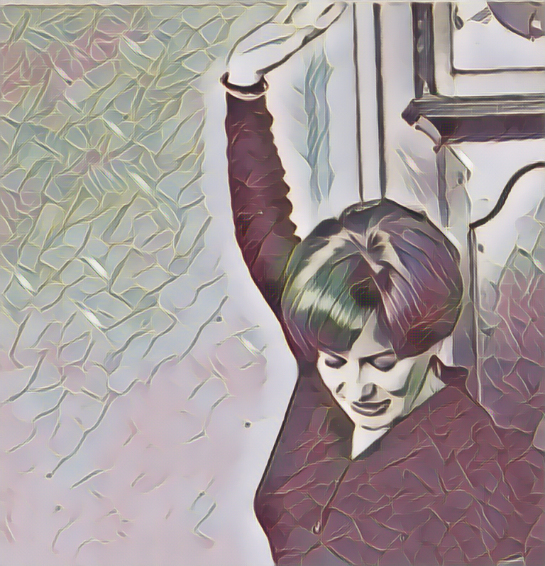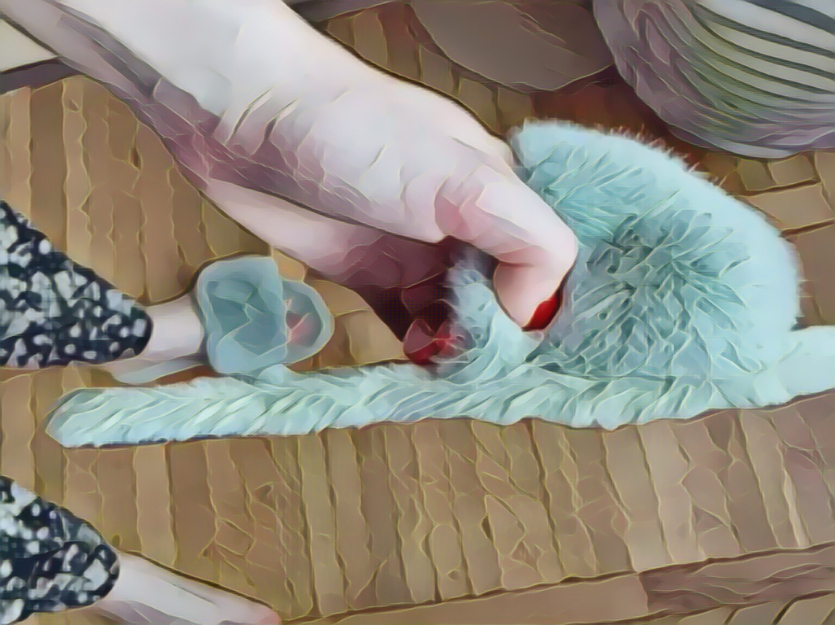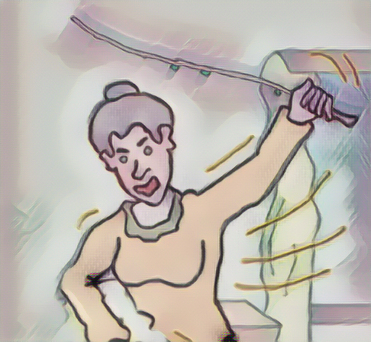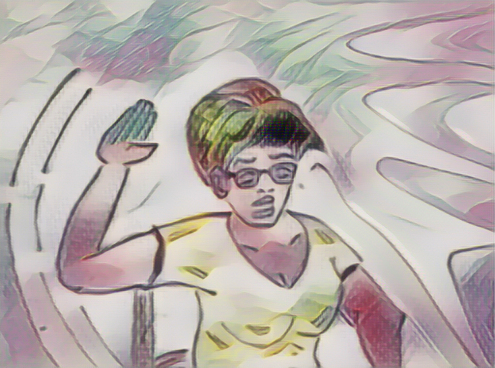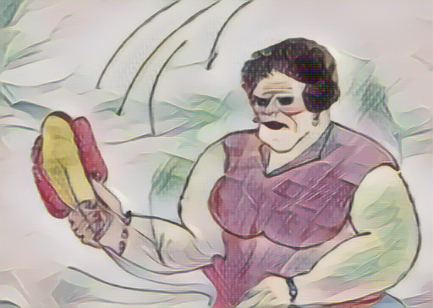(short pause) My mother often compared me to Sally, always pointing out how much better behaved she was, how polite and considerate. In those days, it was perfectly normal for parents to believe in firm discipline—especially in our family. Aunt Marjorie was known for her no-nonsense approach, and nobody thought twice about a child being smacked for misbehaving. Spanking, she said, was the surest way to teach a lesson, and in the late sixties, that was just the way things were. I’d heard stories about Sally’s childhood punishments, but I never imagined they continued into her teenage years. The idea seemed both shocking and strangely fascinating to me, though I never dared ask Sally about it directly.
(pause) That summer, the air was thick with the promise of adventure. I was determined to show Sally that I was just as grown up as she was, maybe even more so. One afternoon, emboldened by a sense of rebellion, I managed to buy a pack of cigarettes from the corner shop. My heart pounded as I slipped them into my pocket, feeling both terrified and exhilarated. Sally’s eyes widened when I showed her the pack. “We can’t,” she whispered, glancing nervously toward the house. “Mum would kill us if she found out.” Her words only made the challenge more irresistible. After some coaxing, I convinced her to join me, promising that we’d be careful and no one would ever know.
(short pause) We crept away to a secluded spot by the stream in the nearby woods, a place where the sunlight filtered through the leaves and the world felt far away. The water gurgled over smooth stones, and the air was cool and damp. We sat on the mossy bank, our legs dangling over the edge, and lit our first cigarettes with trembling hands. The smoke was harsh and bitter, burning my throat and making my eyes water. We tried to act nonchalant, but it was clear neither of us enjoyed it. Sally’s face turned pale, and she pressed a hand to her stomach. “I don’t feel well,” she muttered. I tried to laugh it off, but I felt queasy too. We stubbed out the cigarettes and hurried home, hoping the fresh air would clear our heads.
(pause) As soon as we walked through the door, Sally bolted for the bathroom. I heard her retching, and a wave of guilt washed over me. Aunt Marjorie appeared in the hallway, her brow furrowed with concern. “What’s wrong, Sally?” she called. I hovered awkwardly, trying to look innocent, but my heart was hammering in my chest. It didn’t take long for Aunt Marjorie to sense that something was amiss. She fixed me with a piercing gaze, the kind that seemed to see straight through any lie. “Is there something you want to tell me?” she asked quietly. I shook my head, but my hands were shaking. She told us both to empty our pockets, and when she found the crumpled packet of cigarettes, her expression hardened.
(short pause) “Are these yours?” she asked, her voice low and steady. I nodded, suddenly feeling very small and foolish. The bravado I’d felt earlier evaporated in an instant. “And you’ve both been smoking them?” We mumbled our confessions, unable to meet her eyes. Aunt Marjorie’s disappointment was palpable, heavier than any anger. “Sally, go up to your room,” she said. Sally’s eyes filled with tears, but she didn’t protest. She slipped past me, her shoulders hunched, and disappeared up the stairs.
(pause) Aunt Marjorie turned to me, her face calm but resolute. She never needed to raise her voice; her authority was absolute. “Michael, I’m sure Sally told you that smoking is not allowed in this house.” I nodded, my cheeks burning with shame. “So you have both chosen to disobey the rules. In a moment, I will go upstairs and give Sally the punishment she deserves. And I think it’s only fair that you receive the same.” In the late 1960s, this was simply how things were done—no one questioned a parent’s right to discipline, and the slipper or the hand was a familiar threat in every household. Her words landed like stones in my stomach. I was stunned—not just at the thought of being punished, but at the realization that Sally, my confident, untouchable cousin, was about to be spanked like a child.
(short pause) But before she sent me to my room, Aunt Marjorie paused, her eyes narrowing with a seriousness that made me shrink inside. She set the cigarettes down on the hallway table and folded her arms, her voice taking on a tone I had rarely heard—measured, deliberate, and heavy with meaning. “You may think smoking is a grown-up thing to do,” she began, her gaze flicking between me and the stairs where Sally had just disappeared, “but let me tell you what it really means. Cigarettes are poison, Michael. They ruin your health, blacken your lungs, and steal years from your life. I’ve seen what they do to people—your grandfather, my own father, coughed himself to sleep every night because of these wretched things. He died younger than he should have, and I will not have that fate for you or for Sally.”
(pause) Her words were sharp, but not cruel. There was a kind of pleading in her voice, as if she wanted to reach through my stubbornness and plant a seed of understanding. “You may think you’re being clever, sneaking around, but you’re only hurting yourselves. Smoking isn’t a badge of adulthood—it’s a trap. The tobacco companies want you to believe it’s glamorous, but all it brings is sickness and regret. I know you want to impress each other, to feel older, but there are better ways to grow up than by risking your health and breaking trust.” She picked up the crumpled pack and held it out for me to see, her fingers trembling just slightly. “This is not how you show you’re mature. Maturity is about making good choices, even when no one is watching. It’s about respecting yourself and the people who care for you.”
(short pause) Aunt Marjorie’s voice softened, but her words cut deeper than any scolding. “I’m not just angry because you broke the rules. I’m disappointed because you put yourselves in harm’s way, and you lied to me. I want you to remember this: every choice you make shapes the person you become. If you start down the wrong path now, it’s much harder to turn back later. I hope you’ll think about that, both of you, before you ever touch a cigarette again.” She let the silence hang for a moment, her eyes searching mine for any sign that her message had landed. “Now, go to your room and wait. There are consequences for your actions, and you will face them. But I hope you’ll remember my words long after the sting of the slipper fades.”
(pause) The lecture lingered in the air, heavier than the threat of punishment. I trudged up the stairs, my mind swirling with guilt and a strange, aching gratitude. In that era, a lecture like that was rare—most parents relied on the slipper alone. But Aunt Marjorie’s words stayed with me, echoing louder than the smack of rubber on skin.
(pause) The minutes crawled by, each one stretching my nerves tighter. I sat on the edge of the bed, my hands clammy, my mind racing. Through the thin walls, I could hear the faint creak of floorboards as Aunt Marjorie made her way to Sally’s room. There was a tense, muffled exchange—Aunt Marjorie’s voice low and firm, Sally’s barely audible, pleading perhaps, or simply resigned. Then, a heavy silence settled, broken only by the distant ticking of the hallway clock.
(pause) Suddenly, the unmistakable sound of a slipper being drawn from the wardrobe echoed through the house—a soft, rubbery slap against a palm, a warning of what was to come. I imagined Sally standing there, her face pale, hands trembling as Aunt Marjorie instructed her to bend over the end of the bed. In those days, there was no ceremony, no drawn-out lecture—just a brisk, matter-of-fact approach. The first smack rang out, sharp and clear, followed by another, and another. Each one seemed to reverberate through the floorboards, a steady, relentless rhythm. I pictured Sally gripping the bedspread, her knuckles white, trying to stifle her cries. The slipper landed again and again, a dozen times or more, each smack a lesson in obedience and consequence. I could almost feel her humiliation, the sting of the rubber sole, the hot flush of tears on her cheeks. In the late 1960s, this was not considered cruel or unusual—just a necessary part of growing up, a way to ensure children remembered the rules. The sounds faded, replaced by a quiet, broken only by Sally’s muffled sobs and the soft closing of her bedroom door.
(short pause) I sat frozen, my own punishment looming. The house felt impossibly still, as if holding its breath. My heart pounded as footsteps approached, and Aunt Marjorie entered my room. She looked slightly flushed, her breathing quick, but her composure was unshaken. She regarded me with a mixture of disappointment and resolve. “Michael, I’m very disappointed in you for encouraging Sally to break the rules. If it weren’t for you, she wouldn’t have been in this position. Are you willing to accept the same punishment?” Her words stung, but I knew she was right. My voice was barely a whisper as I said yes, and apologized.
(pause) Aunt Marjorie nodded, her expression softening just a little. “Good. There’s no question of disobeying me now.” She moved to the bed, stacking two pillows at the edge. “Lie face down here,” she instructed. My legs felt like jelly as I obeyed, burying my face in the bedspread. “You are to keep still while I punish you—if you try to get up, it will only be worse.” I nodded, gripping the sheets tightly.
(short pause) There was a brief, heavy silence, then I heard the soft swish of the slipper as Aunt Marjorie readied herself. The first smack landed with a jolt—sharp, stinging, and immediate. The pain was far worse than anything I’d experienced from my own mother. Aunt Marjorie was a strong woman, a keen tennis player, and she didn’t hold back. The slipper struck again and again, each blow delivered with unwavering firmness. I tried to be brave, to hold back my tears, but the pain built quickly, radiating through my body. The sound of each smack filled the room, echoing off the walls, a steady, unyielding rhythm. My resolve crumbled, and soon I was sobbing into the bedclothes, the shame and pain mingling in a blur of emotion. It felt like it would never end, but finally, mercifully, it was over. Aunt Marjorie set the slipper aside, her breathing steady, and left the room without another word, closing the door softly behind her.
(pause) I lay there for a long time, tears drying on my cheeks, feeling chastened and strangely relieved. The sting lingered, a hot reminder of my disobedience, but also of the boundaries that shaped our world. The rest of the day passed in a haze. I wasn’t allowed to leave my room, and I spent the hours replaying everything in my mind—the thrill of rebellion, the fear of discovery, the sting of punishment, and the quiet, unspoken bond that now existed between Sally and me. Later, I heard her moving quietly in the hallway, and when our eyes met through the crack of our doors, there was a silent understanding between us—a shared experience, a lesson learned the hard way.
(short pause) I never tried to impress her with grown-up antics again. That summer, I learned that growing up wasn’t about breaking rules or taking risks—it was about understanding consequences, and the quiet strength it takes to accept them. And in the late 1960s, that lesson was often taught with a slipper, and accepted as just another part of childhood. But Aunt Marjorie’s words about smoking, spoken in that rare, earnest lecture, stayed with me long after the pain faded—a warning, a plea, and a lesson I would never forget.
